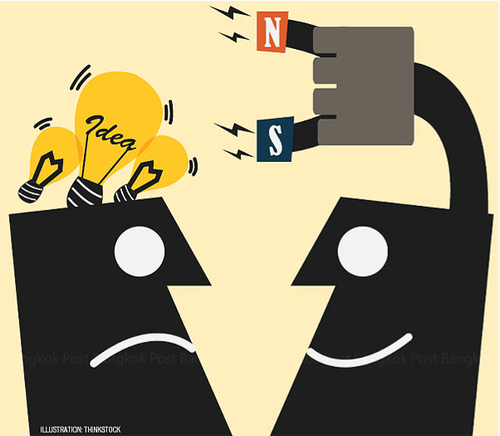In our last article we introduced you to some key intellectual property terms and to some of the basic principles of intellectual property law. Today, while those of you without HBO are figuring out how to watch the recent Game of Thrones finale, we’ll focus on Thailand’s copyright laws.

To reiterate, copyright is a form of protection offered to the authors of original creative works for the period of their lifetime and, usually, for another 50 years after their death. The films that we watch, the books we read, the music we listen to and the software we use are all examples of copyrighted material we interact with daily.
The current international standards on copyrights are contained in the Berne Convention for the Protection of Literary and Artistic Works (1886), which requires its signatories to recognise the copyrighted works of authors created in other signatory countries in the same way such countries recognise the copyrights of their own nationals.
Thailand’s copyright laws were first introduced in 1892 by King Rama V, who proclaimed that the Royal Liberty Committee were the sole and exclusive holders of the rights to copy, adapt and publish Royal Decrees. Thailand’s first attempt at legislatively introducing copyright protection came in 1901 with the enactment of the Law on the Ownership of Authors, which was influenced by the Copyright Act 1709, commonly referred to as the Statute of Anne, name after Queen Anne of Great Britain and Ireland.
This act was then amended to become the act for the Protection of Literary and Artistic Works (1931), which for the first time brought Thailand’s copyright laws in line with international standards. This act lasted 47 years until it was replaced by the first version of Thailand’s Copyright Act. Today, copyrights are governed in Thailand by the Copyright Act (1994). The act attempts to protect works, or expression of ideas, created by authors of literature, drama, art, music, cinematography or any other work in the literary, scientific or artistic domain.
The act provides the authors of literary and artistic works with the exclusive right, for the author’s lifetime plus 50 years, to adapt, reproduce, communicate to the public, let for hire or otherwise gain benefits from all works created by them. The extension of these rights beyond the life of the author is an issue subject to differing opinions in the intellectual property community. The intention behind the concept is to ensure that the heirs of the creator continue to receive royalties for the works even after the death of the creator. Consider the case of an author who toils away for a lifetime on their magnum opus and then perishes in the weeks after its publication; how unfair if their long suffering spouse was unable to enjoy the fruits of the author’s labours.
To put this into context, Forbes magazine releases an annual list of the highest earning dead celebrities. Topping the list for 2013 is Michael Jackson, whose estate has received royalties in excess of US$160 million since the passing of the pop legend. Included on the list are Elvis Presley, Charles Schulz, Bob Marley, Albert Einstein and Bruce Lee.
After the term of the copyright expires, the works enter into the public domain and can be used by anyone. A few examples of works now in the public domain include those of Lewis Carroll, Franz Kafka, Mozart and Chopin. These works can be used without a royalty fee being payable to the estate of the creator.
Thailand is an example of a non-registration system, meaning that once the author has expressed his/her idea, the work automatically becomes protected under the Copyright Act. Should one wish to formally register their copyright with the Department of Intellectual Property they may do so. Registration serves only to aid in any dispute regarding who holds the copyright.
How do holders of copyrights enforce their rights in Thailand? The usual recourse for copyright holders is to file a lawsuit to seek damages for losses arising from the breach of copyright, and perhaps to seek other civil remedies such as injunctive relief to prevent further breaches. The act also provides for criminal sanctions to be imposed on infringers of copyrights, including imprisonment, fines and monetary compensation. An offender is subject to a maximum jail term ranging from six months to four years and/or can also be subject to a 800,000 baht fine per infringement. During the trial, the copyright holder is entitled to seek an injunction to prevent further infringement.
How does one know if they are infringing a copyright? Any person who reproduces, adapts or communicates to the public, works which are subject to copyright protections are in breach of Section 27 of the act. Purchasers beware, should you knowingly purchase material which has been reproduced in violation of the act and attempt to sell, communicate, distribute or import that material then you will be in breach of Section 31 of the act.
So about that DVD or music CD that you were contemplating burning for your friend? Direct them to the nearest shop to purchase their own copy so that you can avoid four years in a Thai prison and/or a 800,000 baht fine.
And what about streaming those movies and TV shows from those popular sharing websites? We’ll get to that in an upcoming article.
Authors:
Angus Mitchell ([email protected])
Kunal Sachdev ([email protected])
Thunyaporn Chartisathian([email protected]).
Originally published in the Bangkok Post:
http://www.bangkokpost.com/news/investigation/417884/ip-and-copyright-part-2-i-ll-burn-my-girlfriend-a-mix-cd

